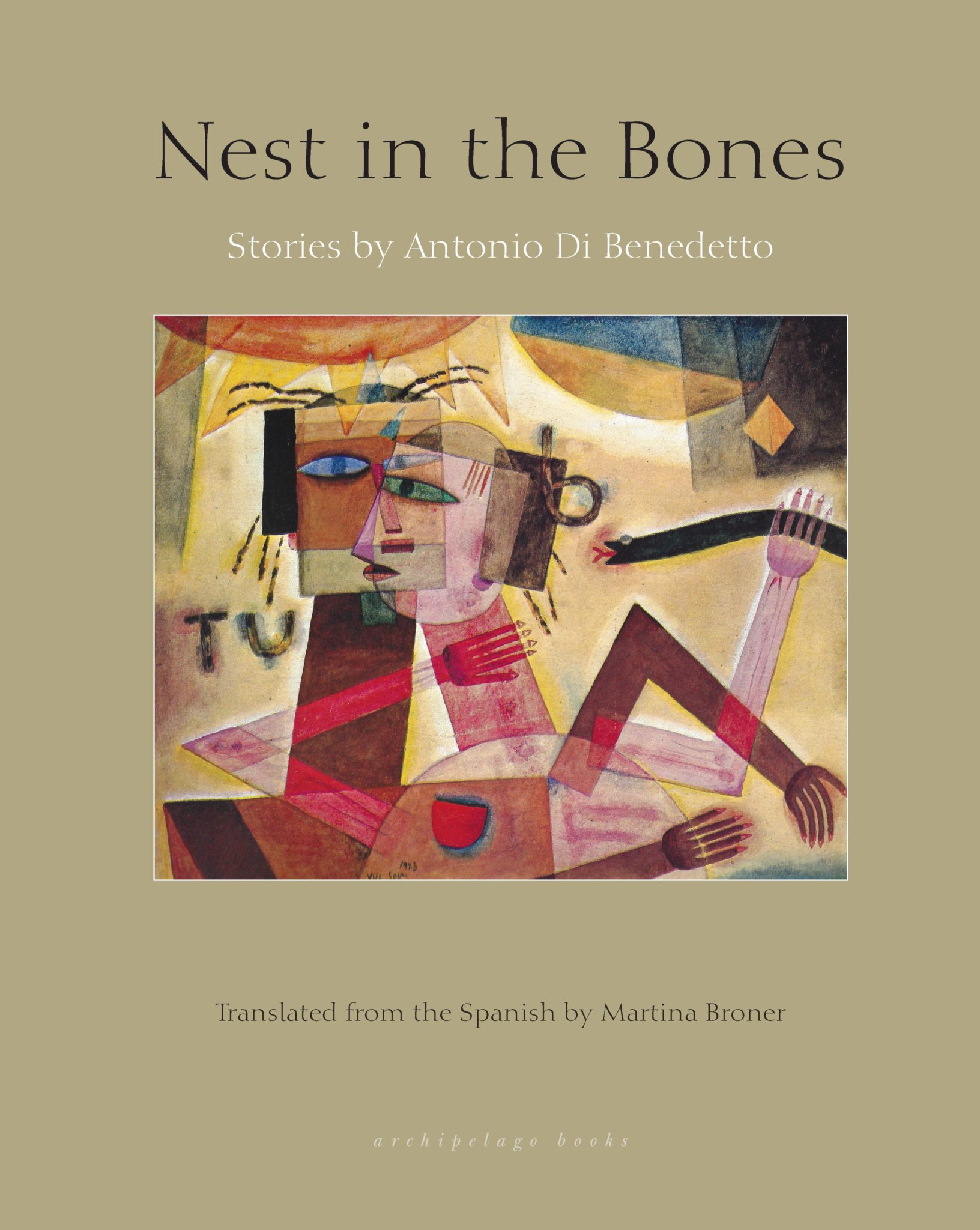Nest in the Bones
by Antonio di Benedetto, translated by Martina Broner
reviewed by Lucas Cuatrecasas
In the year Antonio di Benedetto spent in prison under the Argentine military junta of the 1970s, he endured torture, underwent four firing squad simulations, and wrote some of his best stories. To avoid censorship, he would conceal his work in letters to his friend by beginning them with the words, “Last night I had a lovely dream … ” The phrase is fitting. Later published as The Absurd Ones, these stories all seem to occupy fleeting parentheses of fantasy inside an oppressive reality. And although texts from The Absurd Ones are only part of Nest in the Bones’s fresh translations of Di Benedetto’s stories, their urgency pulses throughout the entire collection. In every story, the Argentine journalist confronts bare suffering with a linguistic precision and a talent for imagery that his translator, Martina Broner, captures effortlessly. Following the recent appearance of Di Benedetto’s landmark novel Zama in English, Nest in the Bones offers a whirlwind introduction to a writer whose enormous weight in Latin America is finally becoming palpable outside its borders.
As the title Nest in the Bones suggests, almost all of Di Benedetto’s stories in this collection deal with shelter amid the aftermath of death. The titular story begins with a monkey whose home, a lone palm tree, topples over, leaving him to be killed by dogs. Later in the story, rapacious vultures force the narrator to hide at the site of the monkey’s death, granting him enough respite to realize that he’s also doomed. Likewise, in “Huddled,” a widower and his sensitive child move from their old house to a series of pensions, whose sheer unfamiliarity tortures the grieving boy and ultimately drives him to “his final refuge” under a bed. Here, shelter is the product of vulnerability. Yet Di Benedetto wisely shows us that the opposite can also be true. In one particularly unsettling story, a physically disabled woman finds herself trapped inside her house after her partner and caretaker dies in bed beside her. Unable to move, eat, or drink, she awaits the fate his corpse foreshadows. Days go by, and as the story creeps toward its gruesome conclusion, shelter becomes its sinister reverse: imprisonment.
The genius of Di Benedetto’s fiction is that it reveals these latent facets—not what things and people are, but what they become in the eyes of another. As a result, the most dazzling moments in his work tend to rely on the strange influence of perspective: A man dreams his cat grows up into a leopard. A father’s grief causes one daughter to mistake herself for her dead sister. A songbird turns a horse’s skull into its nest (and into a reprise of the book’s title). These evocative scenes seem to be less about transformations from one fixed point to another—small to big, dead to living—and more about the transformation of fixity itself. Nothing is stable in Di Benedetto’s world of “lovely dreams,” because individual perception is the only principle at work. When the dreamer’s understanding shifts, the world follows suit.
This love of metamorphosis may be the motive underlying another of Di Benedetto’s favorite themes: animals. Dogs, cats, horses, birds, and other real and imagined vertebrates play leading roles just as often as humans in these stories. But far from a neat catalogue, these distinct animals—humans included—tend to blur together. In “Aballay,” a troubled horseman receives some food from traveling native people, one of whom, seeing that the man doesn’t dismount even to eat, “transmits the disturbing conclusion to the rest of his clan: man-horse.” Conversely, in the moments before its death, the horse whose bones become the songbird’s nest reveals an emotional complexity we often attribute only to humans. Di Benedetto’s refusal to separate humans from the rest of the living world, along with his insistence on the image of the nest, points to a shared longing for protection—from nature, from others, from ourselves.
Yet, as with the woman trapped in bed, this protection can quickly become oppression. A political exile, Di Benedetto knew this danger well. Some of his most poignant stories drip with the “enduring shame” of those whose safety has cost them part of their freedom, those whose survival makes any consolation “late or retrospective.” After all, finding sanctuary often means that returning to repair the past is impossible. We may need our shelters—Di Benedetto seems to say—but we must never let them become our prisons.
Published on September 18, 2017

